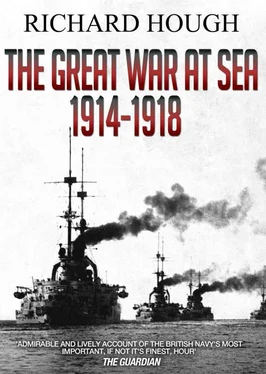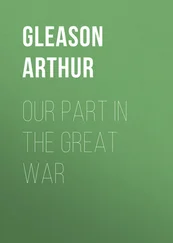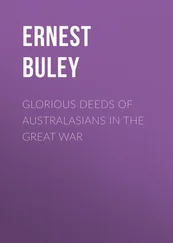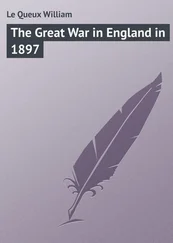“Ten fathoms down the great steel fish, with twenty or thirty men in her belly, was swung about like a bottle by the vast and incessant movement of the water. No one could stand or lie, to open the hatch and to breathe the wind again was to risk the sea water pouring into the hull. Sea-water mixed with petrol gas… form chlorine gas, which is fatal to life.”
It was within weeks of this despatch that Boyle had taken D3 further and more perilously into the shoal water of Sylt, off the German coast, and earned the temporary admiration of his commander – enough to be awarded command of one of the new E class.
It was an elite job. Horton would make his reputation in E9 in the Baltic, just as Lier would in E4 and Nasmith would in E11 and Cochrane in E7. Boyle took command of E14 in Liverpool and sailed her round the coast to Harwich, only to be attacked on one of his first patrols by the British cruiser Aurora and four destroyers. He tackled the destroyer captains about it in dock that evening. They said that they had noticed that his submarine had a long straight upper deck, in the British style, but they still thought she ‘might’ be German.
It was a peculiar life, in peril at sea but back home in the midst of civilian life a few days later. It was a strange modern kind of war, familiar to RAF bombers a generation later but unknown before then – and deeply stressful for families and friends. There were no battered warships returning to dock after action, no wounded soldiers travelling back from the front; if a submarine ran into the enemy and lost, they were just never seen again. The only sign that they had gone would be the brave and determined figures of their wives and partners staring hopelessly out to sea. It was a strange combination to be so near danger and yet be able to take weekends or days off relaxing in civilian clothes. Cecil Talbot, in command of E16, was even accused of being a shirker by two ladies in a railway carriage.
We know a little of the atmosphere among the submarine pioneers, especially those in the 8th Submarine Flotilla based at Harwich, because of the satirical magazine they published during the war called the Maidstone Muckrag , and started by Lieutenant Commander Stopford Douglas, on the flotilla staff. ‘Maidstone’ referred to the submarine depot ship where they lived in the harbour, and where Douglas was an officer, and the larger-than-life personalities come back to life in its pages – the antics of Horton, Feilmann, Nasmith, Cochrane and the others – using the kind of black, ironic humour that communities fall back on when some of their number go out and never come back.
“Yet another beard in the mess,” said the first edition, aiming at Herbert Shove, commanding C2, who used to keep a white rat called Cyril in his breast pocket when they dived. “Haven’t we enough hardships to undergo without having these insanitary soup-traps thrust upon us?”
There is then a long description of the kind of satire that exhausted, perhaps even traumatised, submarine officers might find amusing, about their shared struggle with the conning tower hatch in the North Sea in winter. Choose someone and designate them ‘IT’, says the Muckrag :
“He is then given a pair of oilskin trousers to distinguish him from the others and driven up the conning tower. The boat then rises and IT opens the lid. The object of the game is for IT to wash down the players in the boat without wetting himself and for the players in the boat to thoroughly drown IT without getting wet in their turn.”
For ‘washing down’ the captain, IT can score 25 points. If IT gets his boots full of sea water, the other players score 5. “On the homeward trip, the scores are added up and the winner gets the spare egg or extra sausage.”
The Muckrag evokes a forgotten atmosphere of gin in the wardroom, the damp mist of the Harwich quay, and the strain, cold and loneliness of the North Sea and Heligoland Bight – and, of course, the boyish, enthusiastic and demanding presence of the submarine commodore, Roger Keyes:
“Awake, for morning in the Bowl of Night
Has flung the stone that put the stars to flight,
And lo, the Roger of the Quay ordains
That submarines shall seek forthwith the Bight.
By the start of 1915, with preparations under way in France for what turned out to be the Second Battle of Ypres, and with the Grand Fleet huddled in their anchorage escape Flow, the E submarine commanders were kept in the public’s attention by the sheer enthusiasm and determination of Keyes. Then, suddenly, Keyes was gone. “O where, O where is the commodore gone?” asked the Muckrag :
“With his manner so blunt,
and his head full of stunt,
O where, O where can he be?”
In fact, Keyes had been appointed to be Chief of Staff to the admiral commanding the Anglo-French fleet outside the Dardanelles. It was a critical appointment, and – unlike so many of his colleagues – Keyes believed in submarines and knew what they could do. So E11, E14 and E15 were ordered to sail immediately, with their depot ship Adamant through the Bay of Biscay and the Straits of Gibraltar, to follow him.
To continue reading Unheard, Unseen download a copy here.
© Richard Hough 2013
Richard Hough has asserted his rights under the Copyright, Design and Patents Act, 1988, to be identified as the author of this work.
First published by Oxford University Press in 1983
This edition published by Endeavour Press Ltd in 2013












